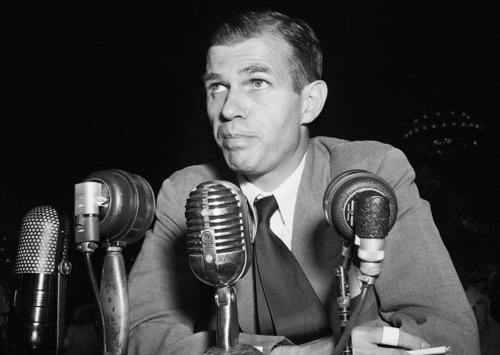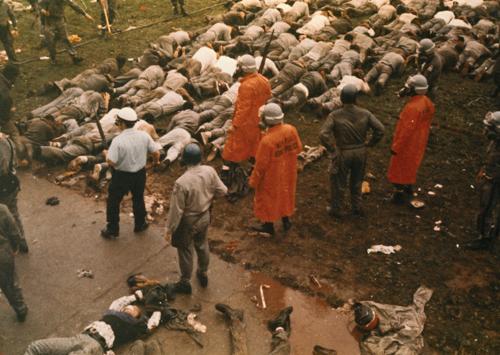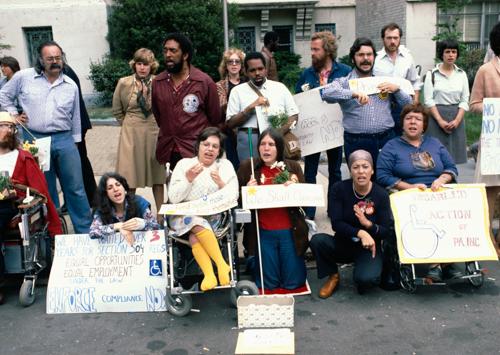Listen to New Voices on Studs Terkel our partnership with 826CHI-here! Read the Story
Showing 1 - 15 of 187 results
-
Willie Sutton in conversation with Studs Terkel
Sep. 16, 1976 Content Warning: This conversation has the presence of outdated, biased, or offensive language. Rather than remove this content, we present it in the context of twentieth-century social history to acknowledge and learn from its impact and to inspire awareness and discussion.
-
William Stringfellow discusses politics, race, and theology
Interviewing William Stringfellow, American lawyer and activist. He discusses various topics including religion, social issues, and activism. Includes an interview with Cora Weiss. Content Warning: This conversation has the presence of outdated, biased, offensive language. Rather than remove this content, we present it in the context of twentieth-century social history to acknowledge and learn from its impact and to inspire awareness and discussion.
-
William Hoffman, Jr. reads from and discusses his book "The Loser" ; part 2
1968 With the continuation of this interview, William Hoffman, Jr. talks about his experiences at the race track, his experiences when bouncing checks and his experience having spent one night in jail in Tijuana. With assistance from Gambler's Anonymous, Hoffman, started to write books and turn his life around, to become a winner.
-
William Hoffman, Jr. reads from and discusses his book "The Loser" ; part 1
1968 With this first part of the interview, William Hoffman, Jr. gives some background into his childhood and growing up, as well as some reasons why he felt the need to be successful at gambling.
-
Tony Hiss discusses his book "Laughing Last"
Mar. 14, 1977 Content Warning: This conversation includes racially and/or culturally derogatory language and/or negative depictions of Black and Indigenous people of color, women, and LGBTQI+ individuals. Rather than remove this content, we present it in the context of twentieth-century social history to acknowledge and learn from its impact and to inspire awareness and discussion. The book, "Laughing Last: Alger Hiss" is the biography of Tony Hiss' father. Although Alger Hiss was convicted of perjury and did time in prison, Tony Hiss said his father, Al, was doing all right.
-
Tom Wicker discusses his book "On Press: A Top Reporters Life In, And Reflection On, American Journalism"
May. 18, 1978 Wicker discusses advocacy journalism versus objective journalism, freedom of the press, and the role of the press in American society.
-
Tom Wicker discusses his book "A Time to Die: The Attica Prison Revolt"
Mar. 21, 1975 Wicker discusses the events at the center of his book, "A Time to Die: The Attica Prison Revolt." The discussion also covers Wicker's thoughts on his responsibility as a journalist to his fellow man. Both Wicker and Terkel read excerpts from the book. (includes excerpts from T2576, 1970 Nov. 20).
-
Theon Wright discusses his book "Rape in Paradise"
Nov. 2, 1966 Discussing the book "Rape in Hawaii" and interviewing the author Theon Wright.
-
Terkel comments and presents his program on capital punishment
Apr. 3, 1978 Terkel Interviews Michael I Rothstein (a lawyer) and Franklin E. Zimring (a law professor) on the subject of capital punishment.
-
Susan Nussbaum and Michael Pachovas discuss the Disabled Americans Freedom Rally with Studs Terkel
Feb. 28, 1981 Susan Nussbaum, founder of Access Living and Michael Pachovas founder of Disabled Prisoners Program discuss the upcoming Disabled Americans Freedom Rally in the backdrop of the International Year of the Disabled Persons and President Reagan's budget cuts. Society needs to understand that expenditures are required to secure the rights of disabled people to live active, productive lives. They need to be able to get out of their apartment buildings or homes, travel on sidewalks and ride buses. That may require access ramps, working elevators, cut curbs, and hydraulic buses to lower steps.
-
Susan Brownmiller discusses her book "Against Our Will"
Oct. 23, 1975 In Susan Brownmiller's book, "Against Our Will: Men, Women and Rape," Brownmiller shows her audience how and why rape is a crime of one's mind and not one of passion. According to Brownmiller, rape is man's dominance over a woman.
-
Studs Terkel interviews author-dramatist Frank Norman in his Bloomsbury Square Hotel, London ; part 2
1968 Terkel wraps up his discussion with Frank Norman. Norman gives his opinion on present conditions in prisons and orphanages. He opens up about his relationship with his daughter and a family he has never met.





